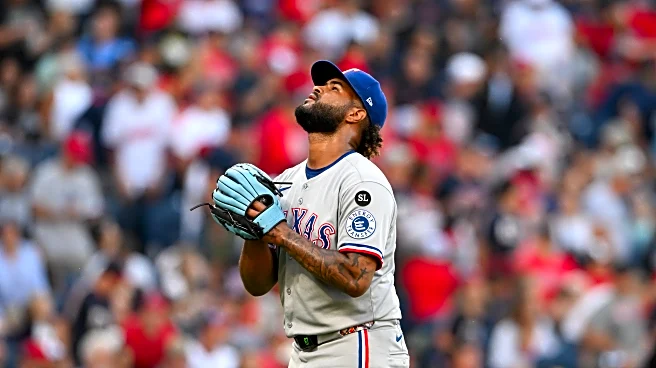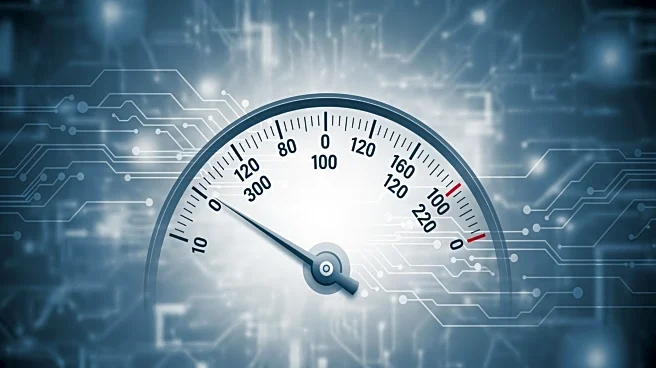BUCHAREST, Romania (AP) — The casket carrying the body of Ion Iliescu, Romania’s first elected president after the bloody fall of communism in 1989, was transferred on Wednesday from the hospital where
he died to the capital’s presidential palace for a state funeral as his death continues to divide opinion.
Eight soldiers carried the casket into a grand hall at Cotroceni Palace, where it lay in state draped with Romania’s tricolor flag, as an Orthodox religious ceremony was held to mark the passing of the divisive former president. Iliescu died on Tuesday, aged 95, after he was diagnosed in June with lung cancer.
He will be buried at a cemetery in Bucharest on Thursday, which has been declared a national day of mourning in memory of the late president, and flags on official buildings shall fly at half-staff.
But in death, as he was in life, Iliescu remains a polarizing figure. His life after politics was beleaguered not only by ill health but also by major legal battles, including charges of crimes against humanity over his alleged role in the bloodshed of the revolution and violence in the aftermath.
Dominic Fritz, president of the governing coalition partner Save Romania Union party, said in a post on social media late Tuesday that his party proposed in a government meeting “that there should be no national mourning” and that USR representatives would not attend the funeral.
After paying his respects next to Iliescu’s casket on Wednesday, along with other former leaders and state officials, former Romanian prime minister Victor Ponta labelled Iliescu a “truly historical personality."
“With good or bad decisions, with great or heinous deeds, with people who loved him and others who hated him. Those who see only good deeds, or only bad deeds, are doing propaganda — not history,” he wrote in a post on Facebook. “Commenting from the sidelines is always easier.”
Many view Iliescu’s death as the end of an era in Romania’s modern history, a chapter in which he was a central figure in the country’s abrupt transition from communist dictatorship to free-market democracy, and later became a member of NATO and the European Union.
Iliescu, who served as a minister in the Communist government but was sidelined in 1971, held de facto military authority during the anti-communist revolt. He assumed power after Communist dictator Nicolae Ceausescu and his wife Elena were executed by firing squad on Dec. 25, 1989.
More than 1,100 people died during the revolution, 862 of them after Iliescu had seized power. He denied any wrongdoing. In 2018, military prosecutors charged Iliescu with crimes against humanity for failing to prevent “numerous situations” in which civilians were needlessly killed during the revolution.
Prosecutors alleged he had spread false information through state media, creating a “generalized psychosis” that fueled chaos and bloodshed. The charges refer to a five-day period during the uprising, after Ceausescu fled Bucharest on Dec. 22, 1989. At the time of Iliescu’s death, he had never been convicted, and the case remained open.
Twice re-elected, in 1992 and 2000, Iliescu had largely withdrawn from public life by 2017. In recent years, his health had declined. In 2019, he underwent heart surgery, was diagnosed with lung cancer in June and spent nearly two months in hospital before his death.
In a statement on its official website, Romania’s Social Democratic Party, or PSD, which Iliescu founded, called it “a very sad day for Romania.”
“He was a strong leader, loved by most, contested by others, as happens in democracy,” the statement read. “In the history of the last 35 years, the Ion Iliescu chapter is the most important.”
In January this year, Iliescu’s legal woes mounted when prosecutors charged him with crimes against humanity in a second case. Prosecutors allege he implemented policies that led to a violent crackdown on civilian protesters in Bucharest in 1990, who were demanding the removal of former communists from power.
Iliescu had called on coal miners from the Jiu Valley to “restore order” in the capital. At least four people were killed.
Despite maintaining good relations with the Soviet Union until its collapse in 1991, Romania became a member of the NATO military alliance in 2004 during his last presidential term.
After his last term ended, Iliescu served as a lawmaker in the PSD, Romania’s dominant political party since communism ended. It is now a junior partner in the governing coalition.
Sorin Grindeanu, the current PSD leader, said on Wednesday that his party would not attend coalition meetings “until those from USR show political maturity and review their attitude.”
“We ask all politicians to show respect and decency towards the first president of democratic Romania, the one who led Romania on the European and Euro-Atlantic path,” he wrote in a post on Facebook.
After President Nicusor Dan’s victory in Romania’s tense presidential rerun in May, Iliescu congratulated the new pro-Western leader in a blog post, noting that Romania “is going through a complex period” and faces economic, social, and geopolitical challenges.
“Romania needs coherence, dialogue and a firm commitment to strengthening democratic institutions and its European path,” he said. “I am convinced that you will exercise this responsibility with dignity and a sense of duty to the nation.”
Dan described the late president on Tuesday as “the central figure of the 1990s transition” and said that “history will judge Ion Iliescu.”
—
Stephen McGrath reported from Leamington Spa, U.K.











